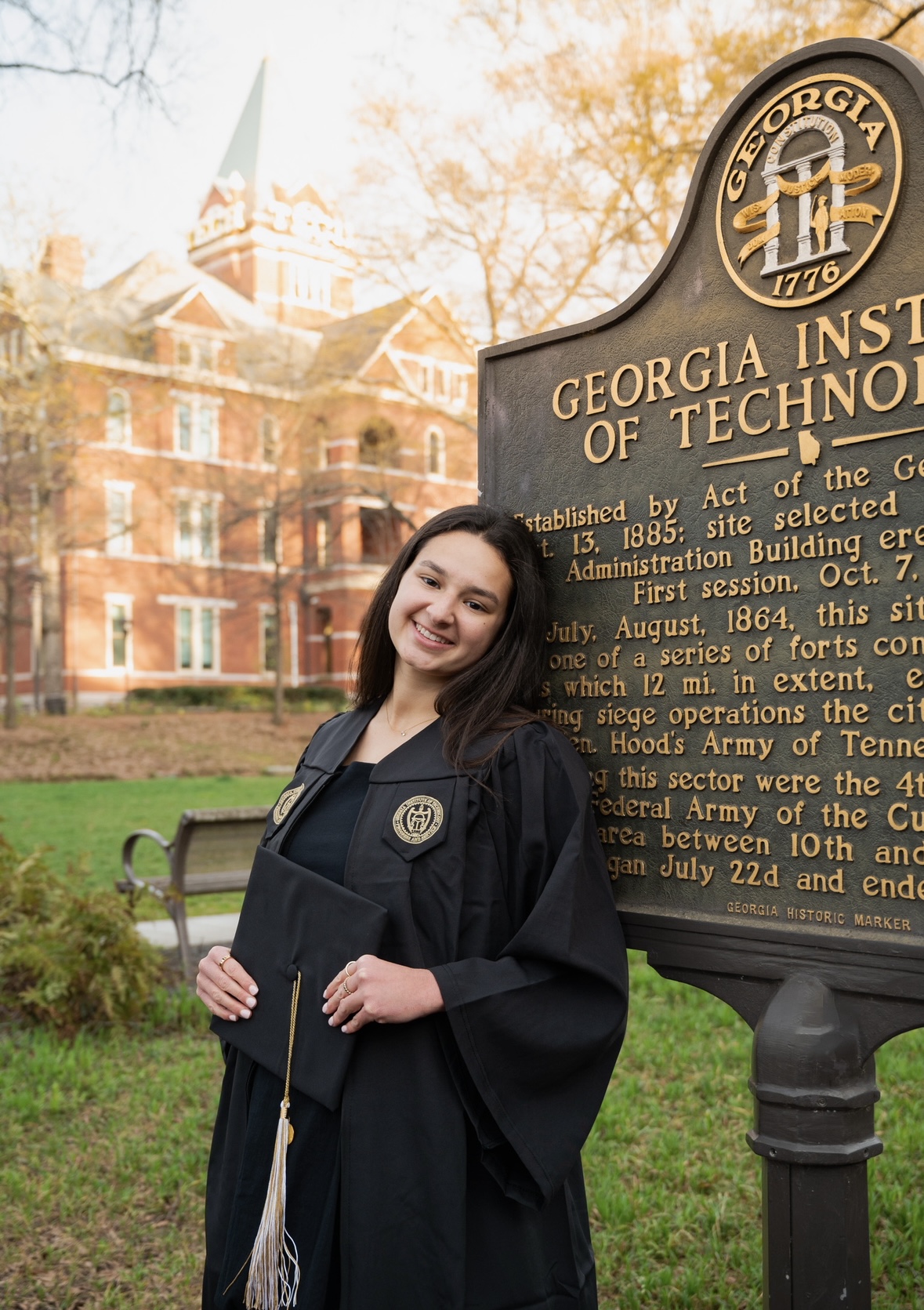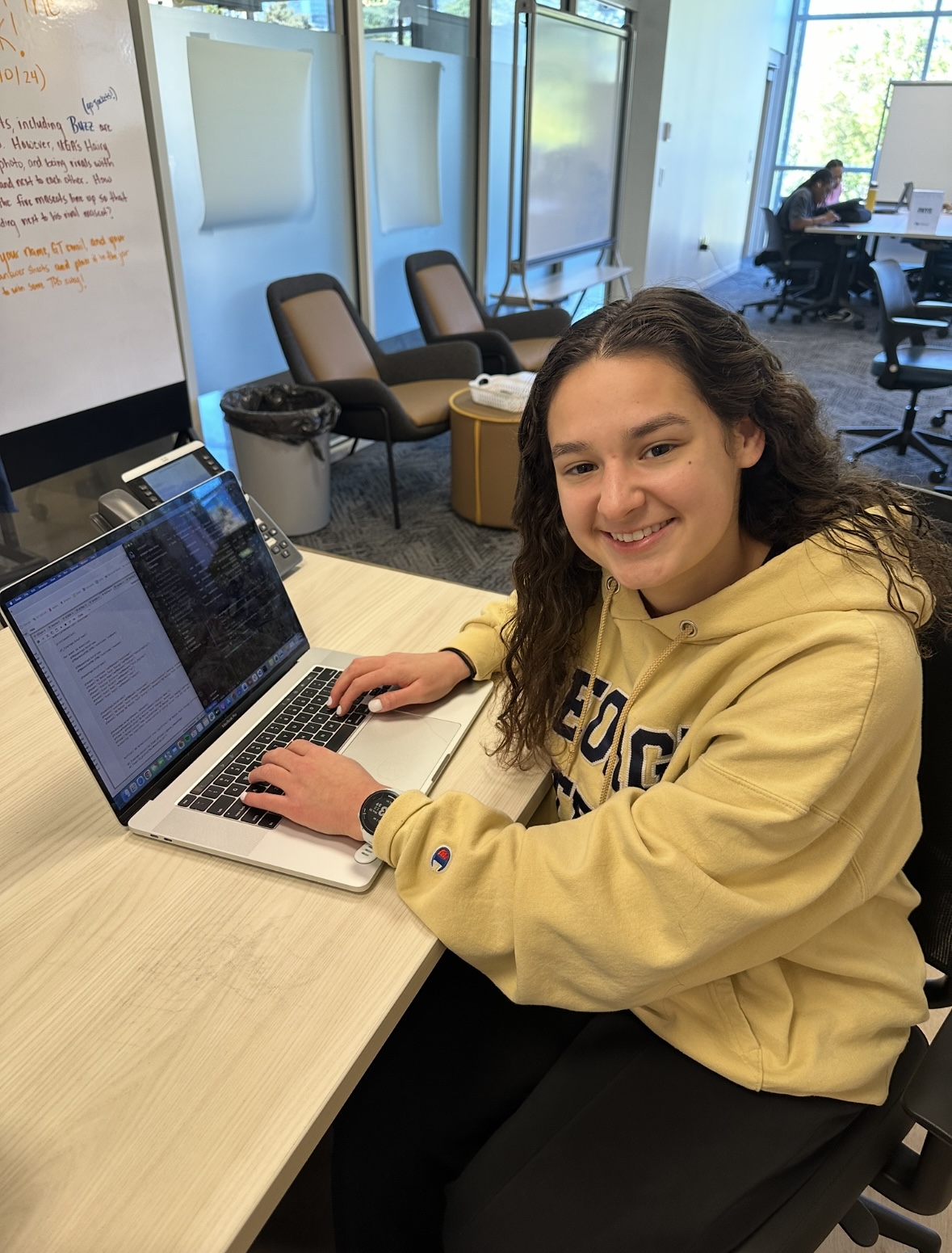Elianna Cohen is a 5th year Earth and Atmospheric Sciences major studying earthquake energy corrections for tsunami early warning systems with Dr. Andrew Newman.

How long have you been an undergraduate researcher at Georgia Tech?
I have been involved in undergraduate research at Georgia Tech for about a year and a half. In the summer of 2024, I completed research in the field of Aerospace Engineering working in the Ben T. Zinn Combustion Laboratory. I then began working with Dr. Newman in the field of geophysics and have continued for the past two semester, starting during the summer of 2025.
How did you get involved with undergraduate research?
During the summer of 2023, I was living at home in Boston and conducting astrophysics research at the Boston College Institute for Scientific Research. Throughout the summer, I found myself enjoying the process of learning and contributing to different research projects, which inspired me to continue research back at Georgia Tech, specifically through UROP and the undergraduate thesis option.
After studying abroad in New Zealand and Australia through the Pacific Program and listening to local stories about the effects of earthquakes, I found myself becoming more and more interested in seismology and the process of detecting earthquakes. I knew I wanted to write a thesis for my undergraduate degree, and as a student majoring in Earth and Atmospheric Sciences with a minor in physics, I found the field of geophysics to be the perfect fit for my research interests. I reached out to Dr. Newman to express my interest in joining his lab, and after learning more about the exciting research he and his team were doing, I was thrilled to join the lab and begin working on a research project the following semester.
What are you working on?
Many tsunamis that occur around the world are initiated by earthquakes, more specifically, tsunami earthquakes, also known as TsE. The most efficient way to send warnings of these potential tsunamis is by detecting the TsE waves in the near-field, where they initially begin propagating. However, in the near-field, when waves are recorded close to a source, they can become contaminated by phase interference due to near-source scattering and attenuation. As a result, in the near-field, these waves become difficult to differentiate between, conclusively producing energy values that are amplified and less representative of the earthquake’s actual energy. Therefore, to assess the near-field, an empirical correction has to be applied to account for the artificial near-field amplification.
For my research, I am creating this correction to de-amplify the energy values, making them practical for tsunami analyzation. After the correction is made, it will then be tested on both previously tabulated and real time data. If the correction is sufficiently robust when applied to real time data, it can be adapted for autonomous, and potentially a single-station rapid tsunami warning system.

What is your favorite thing about research/researching?
I love that through my research I feel like I am contributing to something meaningful and making a difference for communities throughout the world. It makes my work feel more purposeful and important, and that everything that I have learned throughout my time in undergrad at Georgia Tech has been put to good use. Practicing problems in class and on homework is one thing, but being able to work with and engineer real data is a really cool experience, especially when you know it can make a difference in the world.
What are your future plans and how has research influenced them?
I am currently working towards my pilot’s license with the plan of becoming at professional pilot. Though my research is not directly related to that goal, the work that I have been doing has allowed me to think critically and outside of the box, which are both skills that can transfer to the cockpit. Through this research, I have developed the ability to analyze complex information and adapt to unexpected challenges, which has helped me throughout my time in undergrad and will be beneficial for my future plans in aviation.
What advice do you have for students who want to be undergraduate researchers?
Don’t be afraid to cold-email professors whose research you are interested in! All of my undergraduate research experiences initially began with an email expressing my interest in a professor’s research. Once you begin your research, don’t be afraid to ask questions. Learning everything about a project when you begin researching can seem really intimidating, but the more you ask the more you know!
Regarding the research itself, keep reading papers, create testable hypotheses, and document everything you do. This approach can really help you later when you are writing the paper and presenting the research. And, some final words of wisdom from my professor: don’t rush the research process, the most important thing is to produce high quality research, not strictly about meeting deadlines.
